Steering gut health early boosts health and performance
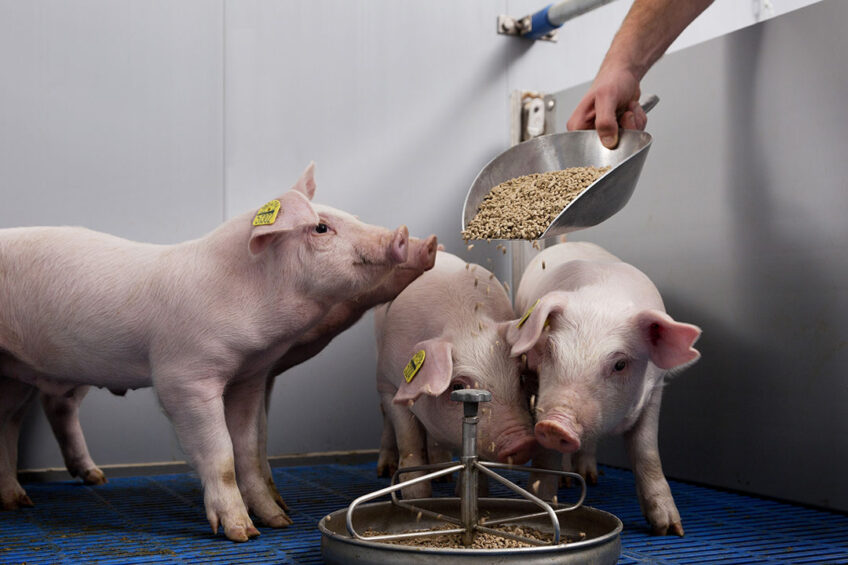
Interventions early in life can help optimise weaning piglets’ health status, setting the stage for robust lifetime performance. Trouw Nutrition’s LifeStart programme focuses on positively influencing feed, farm and health management from conception through the weaning and nursery phases.
The period around weaning is also known as the “immunity gap”, the piglets’ immune system is still immature and at the same time they are no longer protected by maternal antibodies from the sows milk. This period of low protection lasts until 42 days of age.* The developing immune system of piglets and environmental stressors increase the risk of post-weaning health issues threatening growth and performance.
The use of antimicrobials helps to overcome the negative effects of an immature immune system. However, as the use of antimicrobials increases the risk of antimicrobial resistance, this practice is rapidly declining, therefore other tools are needed to help managing the immunity gap. Research shows that functional feed additives in the Trouw Nutrition Swine Health Programme can help maintain animal health and production efficiency while reducing the use of antimicrobials.
Trouw Nutrition developed an integrated strategy for steering health built on 5 pillars that aim to:
- prevent bacterial intake;
- support digestion;
- boost gut integrity;
- increase diversity and stability of the gut microbiota; and
- modulate the immune system to support natural defence mechanisms.
Improving microbial balance
Stress caused by weaning affects the gut microbiota and the gut epithelium integrity. A diverse, stable microbial community is directly related to better feed conversion ratios in both healthy and challenged animals. Presan-FX is a synergistic blend of organic acids, medium chain fatty acids, target release butyrates, slow release C12 and a phenolic compound, designed to stabilise microbiota and strengthen the gut barrier. Research shows that Presan-FX, along with an acidifier increased the abundance of Faecalibacterium, which plays an important role in maintaining intestinal microflora stability and have an anti-inflammatory function. Abundance of Lactobacillus – known to promote animal gut health – also increased (Figure 1).
Figure 1 – Presan-FX promotes beneficial bacteria.

Other studies revealed that Presan FX positively influenced the microbial community of weaned piglets under challenged conditions. Piglets’ faecal microbiota showed an increase in relative abundance of beneficial gut commensals like Ruminococcaeceae, Lachnospiraceae, and Lactobacillaceae. Furthermore, an increased relative abundance of bacterial families known to generate butyric acid by fermentation of cellulose was found, thereby supporting gut health. Piglets’ microbiomes also showed higher presence of bacterial families that help promote gut development and reduce gut inflammation. On the other hand, piglets fed the control diet showed an increase in some bacterial families known to negatively affect health.
A meta-analysis involving 25 scientific studies from 2011 to 2020 in Canada, Europe, Asia and South America, showed that Presan-FX tended to improve piglets’ daily gains by 2.3% during the first 14 days after weaning.
Binding to Enterobacteriaceae
Piglets’ immature immune systems and weaning stress often lead to gut health issues caused by Enterobacteriaceae such as E.coli or Salmonella. A novel feed additive, Fysal Solute physically binds to the adhesins of Salmonella and E.coli, thereby preventing their interaction with the enterocytes lining the gut. This effect is achieved by mannose and mannose-based oligosaccharides that have proven in vitro affinity for specific Enterobacteriaceae adhesins. In vivo trials have shown a reduced shedding of both Salmonella and cefotaxime-resistant bacteria in pigs that received Fysal Solute in the weeks following weaning (Figure 2, data for Salmonella not shown).
Another functional component in Fysal Solute is mycelium of Agaricus subrufescens, a mushroom used in human medicine for its immunomodulating and prebiotic properties.
Figure 2 – Fysal Solute reduces faecal shedding of cefotaxime-resistant bacteria post-weaning.

Research on piglets conducted with the University of Murcia, Spain, showed that Fysal Solute reduced the local inflammatory response in the gastrointestinal tract, indicated by downregulation of cytokine gene expression and IgA producing cells in intestinal tissue. Reducing mucosal inflammation prevents the disruption of epithelial tight junctions and the concomitant increased cellular permeability and “leaky gut” syndrome.
Another study showed that the microbiota composition after a S.Typhimurium challenge was positively influenced. The close link between health and performance is underscored by the fact that piglets receiving Fysal Solute had almost 5% higher body weight at day 49 compared to a competitor benchmark group (22.7kg vs 21.7kg) and more than 6% higher daily gains over the treatment period (355 vs 333 g/d).
In conclusion, functional feed additives can significantly contribute to bridge the immunity gap after weaning and support piglets’ health and performance.
*Reference available upon request
Authors:
Dr Jessika van Leeuwen, Vera Demus, Yvonne van der Horst, Dr Ellen Hambrecht, Trouw Nutrition
 Beheer
Beheer

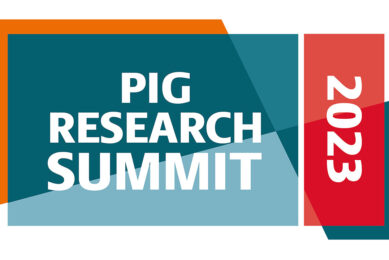
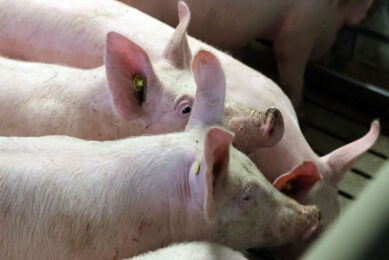
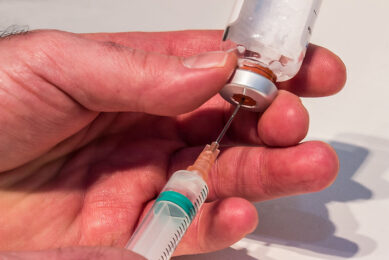
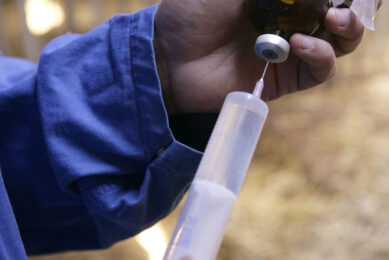
 WP Admin
WP Admin  Bewerk bericht
Bewerk bericht